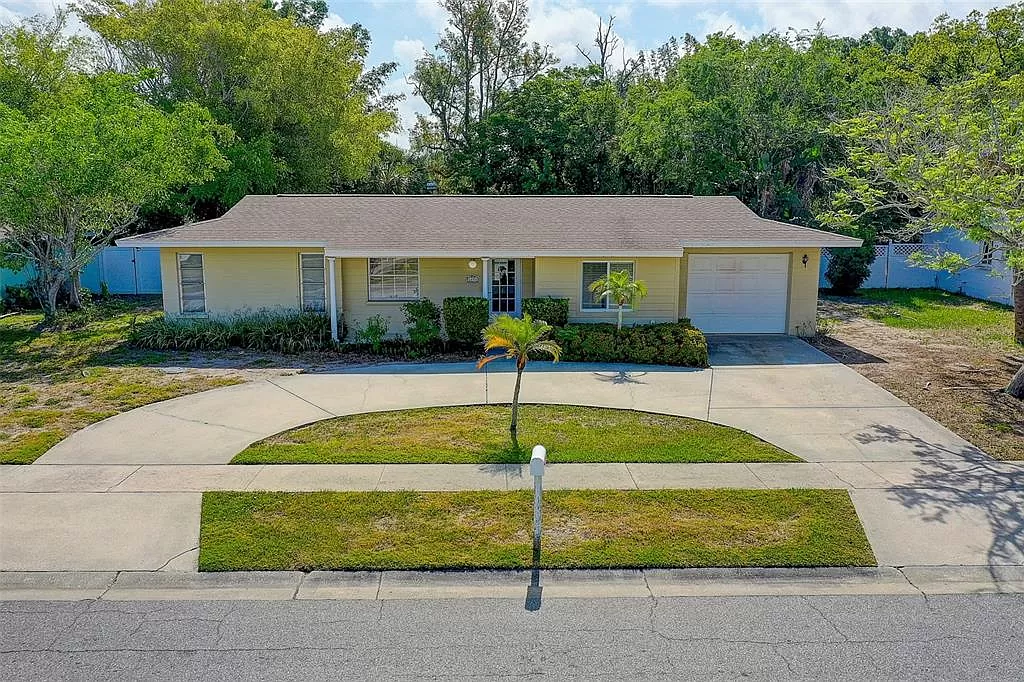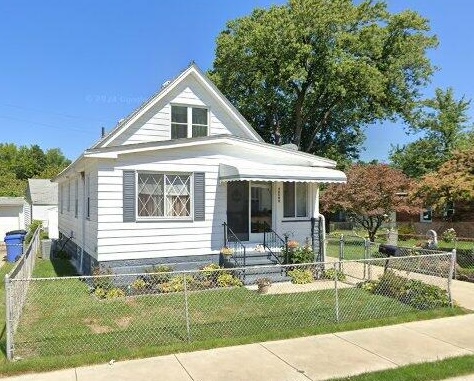Editorial Integrity
Making informed real estate decisions starts with having the right knowledge. At HomeAbroad, we offer US mortgage products for foreign nationals & investors and have a network of 500+ expert HomeAbroad real estate agents to provide the expertise you need. Our content is written by licensed mortgage experts and seasoned real estate agents who share insights from their experience, helping thousands like you. Our strict editorial process ensures you receive reliable and accurate information.
Key Takeaways:
1. HUD’s 2025 update (Mortgagee Letter 2025-09) bars H1B visa holders from FHA loans, limiting eligibility to US citizens and permanent residents.
2. However, H1B visa holders have another option—DSCR loans. This foreign national mortgage option qualifies you based on the property's rental income and not your personal income.
3. HomeAbroad is a one-stop shop that makes the entire process simple for international real estate investors, helping you find properties using our AI-driven investment property platform, get mortgages, set up a US-based LLC, open a local bank account, and handle paperwork required for closing.
For years, FHA loans were the go-to mortgage choice for many foreign professionals. With low down payments, flexible credit standards, and government backing, they offered an accessible path to homeownership. That path has now closed.
On May 25, 2025, HUD issued Mortgagee Letter 2025-09, making FHA loans available only to US citizens, green card holders, and particular permanent residents. Temporary visa holders, including H-1B professionals, are no longer eligible. This change means that one of the easiest entry points to the US mortgage market is off the table for thousands of skilled workers.
Table of Contents
Why FHA Loans Are No Longer Available to H-1B Visa Holders
FHA loans were considered one of the most accessible mortgage products for H-1B visa holders for many years, for the following reasons:
- Low down payments (as little as 3.5%)
- More flexible credit requirements
- Government-backed assurance for lenders
However, in May 2025, HUD announced a policy change that excluded all non-permanent residents from FHA eligibility. This includes H-1B, L-1, F-1, and other work- or study-based visas.
According to the official HUD release:
- Only US citizens, green card holders, and certain immigrants with permanent residency status remain eligible.
- Temporary visa holders are no longer allowed to access FHA-insured mortgages.
(Source: HUD Mortgagee Letter 2025-09, US Department of Housing and Urban Development)
This change has left many highly skilled foreign professionals searching for alternative mortgage solutions.
What Mortgage Options Do H-1B Visa Holders Have Now?
The loss of FHA financing has created uncertainty, but it doesn’t mean homeownership or investment is out of reach.
Two loan categories remain practical: conventional mortgages for those with established US credit and HomeAbroad’s Full Documentation Loan for newcomers without it. For investors, DSCR loans remain a strong choice.
1. Conventional Mortgages
Conventional loans are the most common alternative to FHA loans. However, they are often less accessible for newcomers.
Requirements typically include:
- Credit Score: Minimum of 620+ FICO score
- US Credit History: At least 2 – 3 years of credit activity preferred
- Down Payment: 5 – 20% depending on profile
- Income Verification: Documented US income and employment history
- Visa Validity: Proof that your H-1B status is valid for the duration of the loan
Who It Works For:
- H-1B holders who have been in the US for several years
- Those who have built firm US credit profiles
Limitations:
- May require larger upfront cash commitments
- Not beginner-friendly for new arrivals
2. HomeAbroad’s US Newcomer Mortgage (The Best Fit for H-1B Professionals)
For newcomers without a US credit history, HomeAbroad’s US Newcomer Mortgage is often the most practical option.
Why It’s Better Suited for H-1B Holders:
- No US Credit History Required: H1B visa holders do not need a US credit history.
- Competitive Loan Terms: Interest rates and terms aligned with market standards
- Streamlined Approval Process: Simplifies documentation for foreign professionals
- Expert Guidance: Assistance from HomeAbroad’s mortgage officers experienced with international clients
Who It Works For:
- New H-1B professionals just starting their US journey
- Professionals with limited or no US credit history
- Borrowers who want a program designed to accommodate international situations
This program was created to fill the exact gap left by the FHA’s withdrawal and is now the leading solution for foreign nationals working in the US.
DSCR Loan for International Real Estate Investors
For H-1B visa holders who want to invest in real estate rather than buy a primary home, HomeAbroad's Debt Service Coverage Ratio (DSCR) loan is highly effective.
Key Highlights of DSCR Loans:
1. Approval is based on property's rental income, not borrower's income
2. No US credit history required
3. Flexible for both US residents and non-residents
4. Ideal for building a rental portfolio
Important Note: DSCR loans are not for primary residences. They are specifically for investment purchases. You can get more information on HomeAbroad's DSCR Loan here.
How to Choose the Right Mortgage Option
- If you’re new to the US with no credit history: The US Newcomer Mortgage is designed for your situation.
- If you’ve been in the US for years and built strong credit: A conventional mortgage may be possible.
Requirements for HomeAbroad’s US Newcomer Mortgage
To qualify for HomeAbroad’s US Newcomer Mortgage, H-1B visa holders must meet the following criteria:
- Down Payment: 20%
- Credit Score: No US credit history needed
- Debt-to-Income (DTI) Ratio: Maximum 43%
- Income Documents: Pay stubs and employment verification
- Loan Tenure: Up to 30 years
- Loan Amount: Up to $3 million
- Cash Reserves: At least 6 months required
- Foreign Assets: Accepted for down payment, closing costs, and reserves
- Prepayment: No prepayment penalty
- Other Documents: International credit report or alternative proof of creditworthiness from the home country
These requirements make the program more flexible than conventional mortgages while still ensuring responsible lending standards.

Steven Glick,
Director of Mortgage Sales, HomeAbroad Loans
Steps to Apply for HomeAbroad’s US Newcomer Mortgage
Applying for HomeAbroad’s US Newcomer Mortgage is straightforward with expert guidance. Here’s a quick process:
1. Contact Our Loan Officers
Work with a HomeAbroad loan officer to get the mortgage program tailored to your needs.
2. Pre-Approval
Submit your income and fund details to determine eligibility and receive pre-approval.
3. Submit Application
With assistance from your loan officer, prepare the required documents and complete your application.
4. Loan Approval
Receive approval after underwriting and finalize your loan details.
5. Closing
Sign the closing documents and secure your new home.
Conclusion
While FHA loans are no longer available to H-1B visa holders, homeownership remains within reach. Conventional mortgages are an option for those with established credit, but for most newcomers, HomeAbroad’s US Newcomer Mortgage is the most accessible and effective solution.
For H-1B professionals interested in investment opportunities, DSCR loans provide another route.
The future of homeownership for H-1B holders lies not in outdated programs but in solutions tailored to their needs, and HomeAbroad is leading that change with our personalized mortgage options.
FAQs
Can H-1B visa holders still qualify for FHA loans?
No. As of May 25, 2025, FHA loans are no longer available to non-permanent residents, including H-1B holders.
What is the best mortgage option for newcomers without a US credit history?
The US Newcomer Mortgage is the most practical solution, designed for international professionals without US credit.
Do H-1B holders qualify for conventional mortgages?
Yes, but they must meet stricter requirements, including a credit score of 620+, a US credit history, and stable employment.
Can H-1B visa holders invest in US real estate?
Yes. A DSCR loan allows H-1B visa holders to purchase rental properties based on property cash flow instead of personal income.




![FHA Loans for H1B Visa Holders: Is It Possible? [Latest Update]](https://homeabroadinc.com/wp-content/uploads/2023/08/FHALoansForH1BVisa-500x325.png)



![H1B Visa Mortgages: How to Qualify with No US Credit? [2026]](https://homeabroadinc.com/wp-content/uploads/2024/09/h1b-visa-mortgages.png)
![How to Buy a House on an H1B Visa [2026]](https://homeabroadinc.com/wp-content/uploads/2021/08/BuyingonH1BVisa-scaled.jpg)













